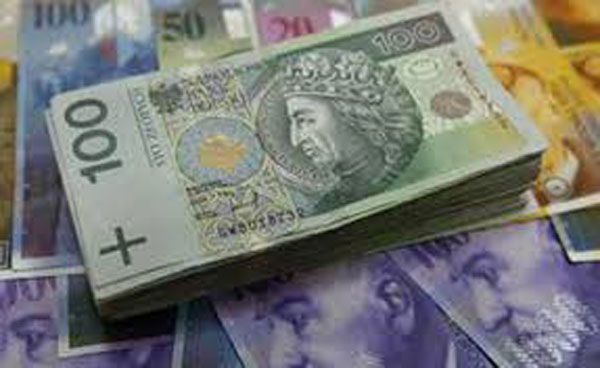Wednesday, 18 November 2015 00:30
 BUDAPEST: The forint firmed a shade as Hungary’s central bank kept interest rates on hold as expected, while a jump by OTP Bank shares boosted the country’s main stock index to a 6-month high.
BUDAPEST: The forint firmed a shade as Hungary’s central bank kept interest rates on hold as expected, while a jump by OTP Bank shares boosted the country’s main stock index to a 6-month high.
Hungary led a firming of Central European stocks which tracked a rebound in Asian and Western European equities from a fall on Monday following Friday’s Paris attacks.
Currencies remained rangebound.
After an initial slight easing against the euro, the forint soon reversed its course and at 1455 GMT it traded at 311.65, firmer by 0.1 percent.
It rebounded even before the central bank said that it kept its main interest rate on hold at 1.35 percent, in line with its guidance that its rates could stay unchanged for years.
The bank said that its targeted tools which aim to push funds out of its instruments and into government debt could also facilitate a decline in long-term market interest rates.
The Hungarian yield curve flattened a bit even before the statement, with the 10-year yield dropping 5 basis points from Monday’s fixing to 2.325 percent.
“The slight forint firming is linked with the general/global market sentiment,” CIB Bank analysts said in a note.
The Budapest stock exchange’s main index rose 2 percent, helped by an almost 5 percent rise of the stocks of OTP, the country’s biggest lender.
The Constitutional Court annulled part of a law that required commercial banks to pay the costs of bailing out clients of failed brokerage Quaestor.
The decision may help Hungarian banks, which have been heavily taxed for years even though the impact will depend on how the government changes the law.
Hungarian assets also get support from expectations that a credit rating review by Fitch on Friday will see Hungary’s sovereign rating returned to investment grade.
The leu eased 0.1 percent against the euro even though the new Romanian government of technocrats won a confidence vote in parliament by an overwhelming margin.
Tax cuts and wage hikes launched by the government of Victor Ponta, who resigned last month, have fuelled concerns about Romanian fiscal policy ahead of elections next year.
The zloty of Poland, the region’s biggest economy, was flat at 4.249.
Raiffeisen Polbank analyst Dorota Strauch said the prospect of a US interest rate rise would keep a lid on the currency, which could trade between 4.24 and 4.21 in the short term.



























